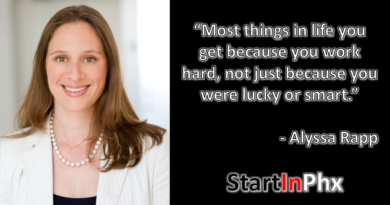Lessons Learned From Paying Off +$20,000
Debt Freedom
Becoming debt free was one step of many that I’ve committed to in order to improve my finances and ultimately build wealth.
I want to build wealth so that I can be free of stresses that I have to control to eliminate from my life, but also because I want to have the freedom to spend time with my family, take care of my family, and retire with the best years of my life still ahead of me. These things are what make up the life I want to live, they are purpose.
Similar to other aspects of my life, especially my career, knowing my purpose helps guide my financial decisions.
Other than having debts forgiven, the most successful method for ridding your life of debt as soon as possible is by making early payments toward the principle. By making larger payments than the lender requires you won’t only finish repaying them sooner, but you’ll pay less in interest and fees.
Here are my recommendations for debt repayment after paying off +$20,000 in student loans and medical bills 15 years ahead of schedule.
Set a Budget
The word budgets has developed a negative connotation. That’s probably because when we think of budgets we think of having to deny ourselves things we like, and I guess that’s somewhat the case.
Learning to delaying gratification is key to becoming debt free. Not having the discipline to say no or to delay purchases you couldn’t really afford is probably how you ended up in debt in the first place.
Of course, you control your budget. You are the one who decided how your money will be spent. You hold the power to choose the purchases that will give you the greatest amounts of gratification over the cheap thrills that only serve to distract you from the things you really want.
Instead of thinking that a budget means you have to say no to things, try thinking of your budget as the system you use to say yes to the things you want more than anything else. You can do this by assigning every dollar you earn a job in meeting your most basic needs, paying off your creditors, and granting you the enjoyable parts of life without making you a slave to a lender.
I like to budget for the whole month. At the beginning of each month I consider how much money I made in the previous month and then assign every cent a role in getting me to the next month.
I use MS Excel to keep myself organized and then, starting with the most important items first, I work out my months budget for food, shelter, gasoline, life insurance, health insurance, car insurance, savings, and the list goes on until I run out of money. At that point whatever goes unfunded in that month seems alright because I’ve already taken care of the most important things I need or want.
It’s important to consider things like your car insurance or life insurance that you may only pay every six months or annually when making out your monthly budget. When you happen upon a month in which you do have to pay a premium, you want to be sure that you already have the money on hand. Dividing a six month payment by six or an annual payment by twelve and then saving that amount every month will take the sting out of actually having to pay them on time.
Within in a single month I take my budget a step further by calculating how much I can spend in a single week or day on coffee, lunches, entertainment, and gasoline so that I can keep myself in check on a purchase by purchase basis. These smaller numbers are easier to memorize than having to check-in with my budget spreadsheet several times a day.
Audit Your Budget
Creating a budget is great, but if you don’t comb over your expenses at the end of each month to assess how well you’ve actually executed your plan (Pronounced: budget), how can you know if you’re making progress toward your goal of being debt free?
An audit of how you actually spend your money will help you to self-correct your bad habits and ensure that you stay on the path to debt recovery.
I rarely use cash so it is pretty easy for me to audit how I spent my money by looking back over my debit card and bank statements. You don’t need a credit card for this convince, so if you’ve struggled with credit card debt it may be best to steer clear of them altogether by sticking to cash, your debit card, and by writing checks.
Similar to how I break my budget down to an allowance for single purchases on coffee, lunches, ect. Dave Ramsey suggests using an envelope system. In short the envelope system make your budget a more tangible idea by using a physical paper envelope to represent each line item in your budget (i.e. food, rent, fun, ect.). In each envelope you store the actual cash you’ve assigned to that category of purchases. Then over the course of the month you only use the money in each envelope to make purchases within the respective category.
The beauty of the system is that you see the money leave the envelope as you make purchases, and once the money is gone it gone. You can’t make any more purchases in a category once its envelope is empty.
This is almost an audit as you go approach to budgeting. It works really well for folks who have a habit of busting their budget because in using a debit card money is out of sight and out of mind.
Cut Costs
Everything you purchase is a choice.
Deciding to not change the oil in your car regularly is a choice to incur the cost of new vehicles at an accelerated rate. In this example the choice to save money on the cost of regular maintenance is a choice to spend more in the long run.
Besides making your purchasing decisions based on long-term cost effectiveness there are plenty of things you can do to cut costs in the short-term.
One simple way is to check you debit card, credit card, and bank statements for reoccurring charges on services or subscriptions you don’t use regularly. By unsubscribing to these services you put that money right back into your pocket.
For me cable was a no brainer when looking for expenses to cut. Most of us need internet to work and communicate with the world, but it also offers us a great deal of entertainment in place of cable television. Besides, most of your network channels can be retrieved using a digital TV antenna that cost less than a single month of basic cable.
Of course, grocery shopping is another area in which you can have an immediate impact on the cost of your monthly expenses.
Slash Your Grocery Budget with These 3 Tips
Purchasing the food we eat and the products we use at home is a huge part of most people’s monthly living expenditure. For people working to pay off a lot of debt in a short period of time, cutting cost in this area by not eating out and by being thrifty at the grocery store can help you make significantly higher payments toward your debts.
#1. Create a list before you go to the store
Having a list keeps you clear on your priorities for the shopping trip. It can also be used to track the cost of items as you add them to your basket.
Some people are able to maximize their budgets by pre-selecting the items and brands for their shopping list according to the week’s sale items.
#2. Shop Weekly
Even with a list you’re bound to forget something. Trying to buy a month or several weeks’ worth of groceries sets you up to forget a lot, compounding the effect of your forgetfulness.
When it comes to groceries and household items, trying to foresee all your needs any further than a week in advance is pretty hard. Buying in bulk increases your likelihood of buying more than you can actually use
In a single week I think of at least a handful of things I need to add to my grocery list. Some of those items are things I’ll need within a few days.
Of course, if I’ve already spent my months grocery budget I don’t have room to reevaluate the urgency of the items I’ve already purchased and I’m much more likely to make an unplanned trip to the store which will take me over budget.
By shopping weekly I can choose to not buy the items as they get out ranked by others over the course of a week, but only I only have this flexibility if I whittle away at my grocery budget a week at a time.
#3. Stick to your list. Resist impulse buys.
If you do forget to put something on your, try to go without for the next week. This will put your purchasing priorities to the test. You might be surprised at what you think you need but don’t miss actually miss when you don’t have it in the house.
We stopped buying paper towels at my house after going a week without. We’ve always had plenty of kitchen towels. Now we have to add those to the weekly laundry, but the towels to add up to the point making us do any more loads of wash in a given week.
Have Perspective
I think it’s also important to remember that some of the sacrifices you make to stay on budget are temporary. Some of the grocery items you can live without are nice to have if you can afford them, and while they don’t fit into your current budget, one day they might.
One day you’ll be free of debt and not having loan payments will feel like getting a raise at work. When that happens you can start to reintroduce those luxuries into your life.
But also, you only have to cut costs to point of paying off your debts at the speed you feel content with. One person might want to pay off $50,000 faster that the next person wants to pay of $20,000. Those personal preferences are going to determine a lot.
Stay Motivated
My best advice for staying motivated is to surround yourself with like-minded people. If you can’t do this in person, be sure you make use of technology to facilitate relationships with people who can support you along the way.
By getting plugged in to communities founded on the same personal and professional values you will find new resources to make achieving your goals easier. You’ll also be able to see the success of others which will help to affirm that what you’re after is possible and worthwhile.
If you’d like a list of the communities I’ve used as a way to surround yourself with like-minded people while working to pay off +$20,000 of student debt and outstanding medical expenses, I’d be happy to send one to you. [Click Here For Free Access]





Pingback: How a 20-Something Improves Their Quality of Life Long-Term
Pingback: Life-Long Learning & Conquering Uncomfortable Goals – #StartTuesday | 5-3-16
Pingback: Self-Motivation, Grit, and the Power of Habit – #StartTuesday | 5-10-16